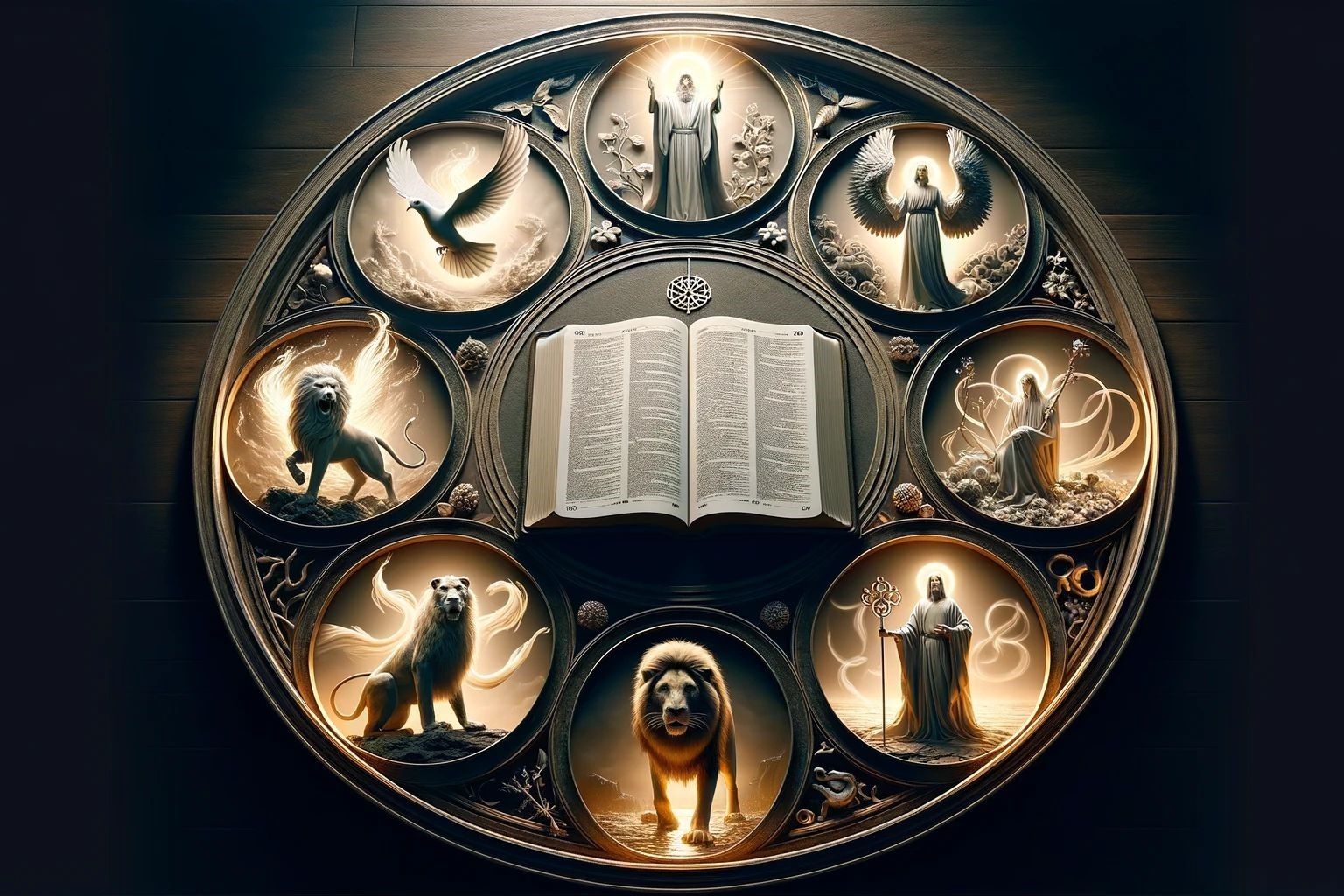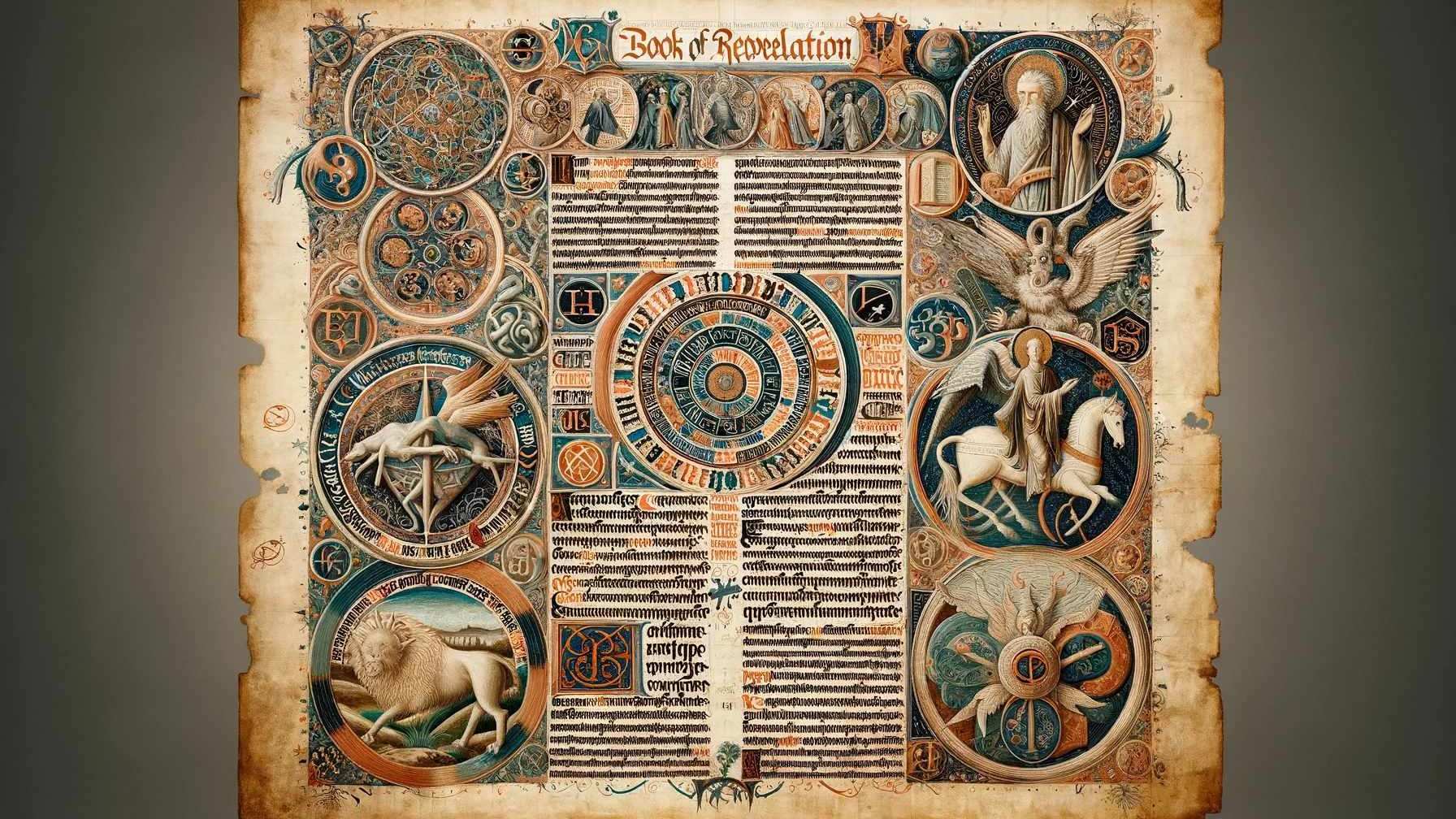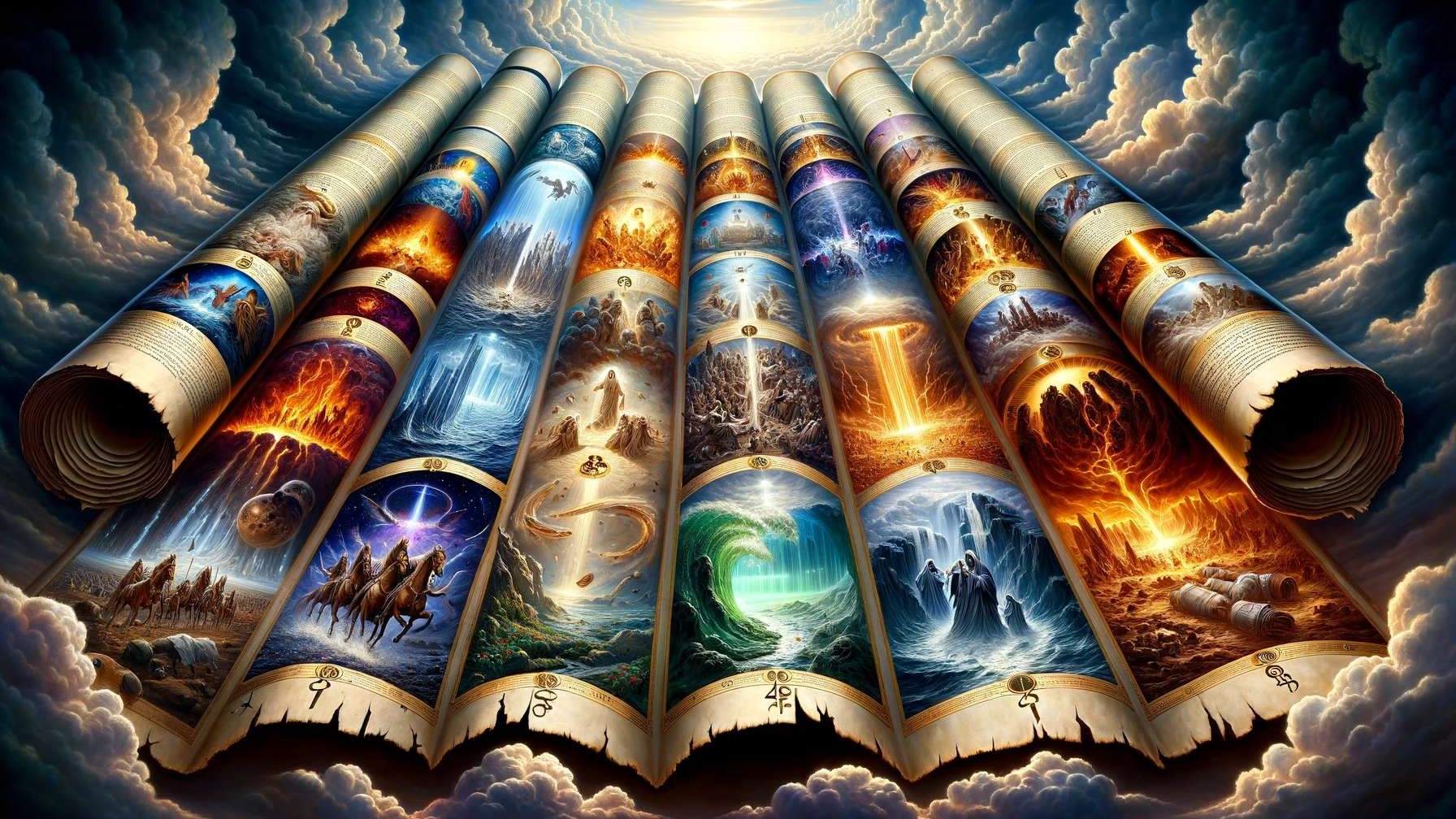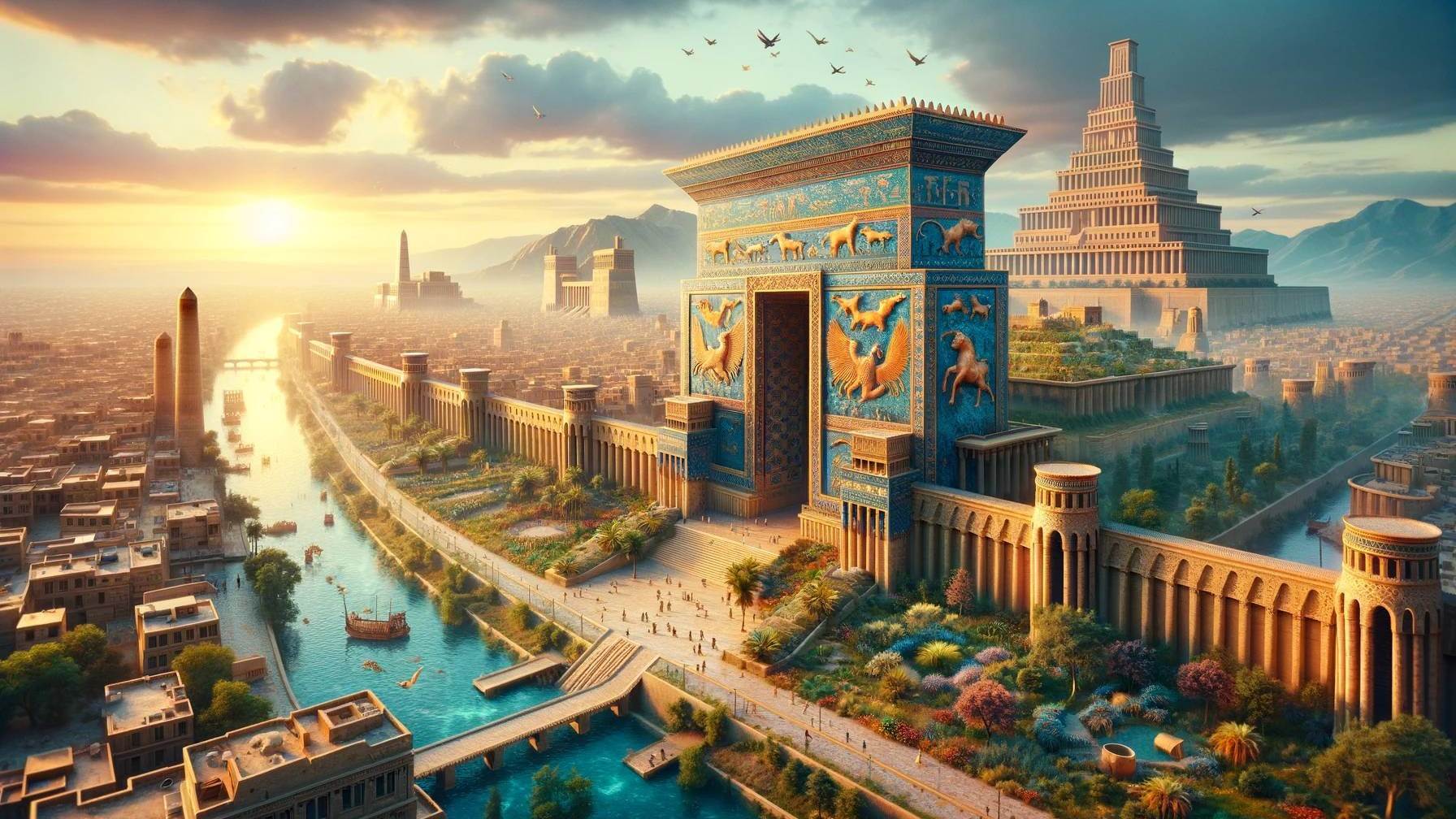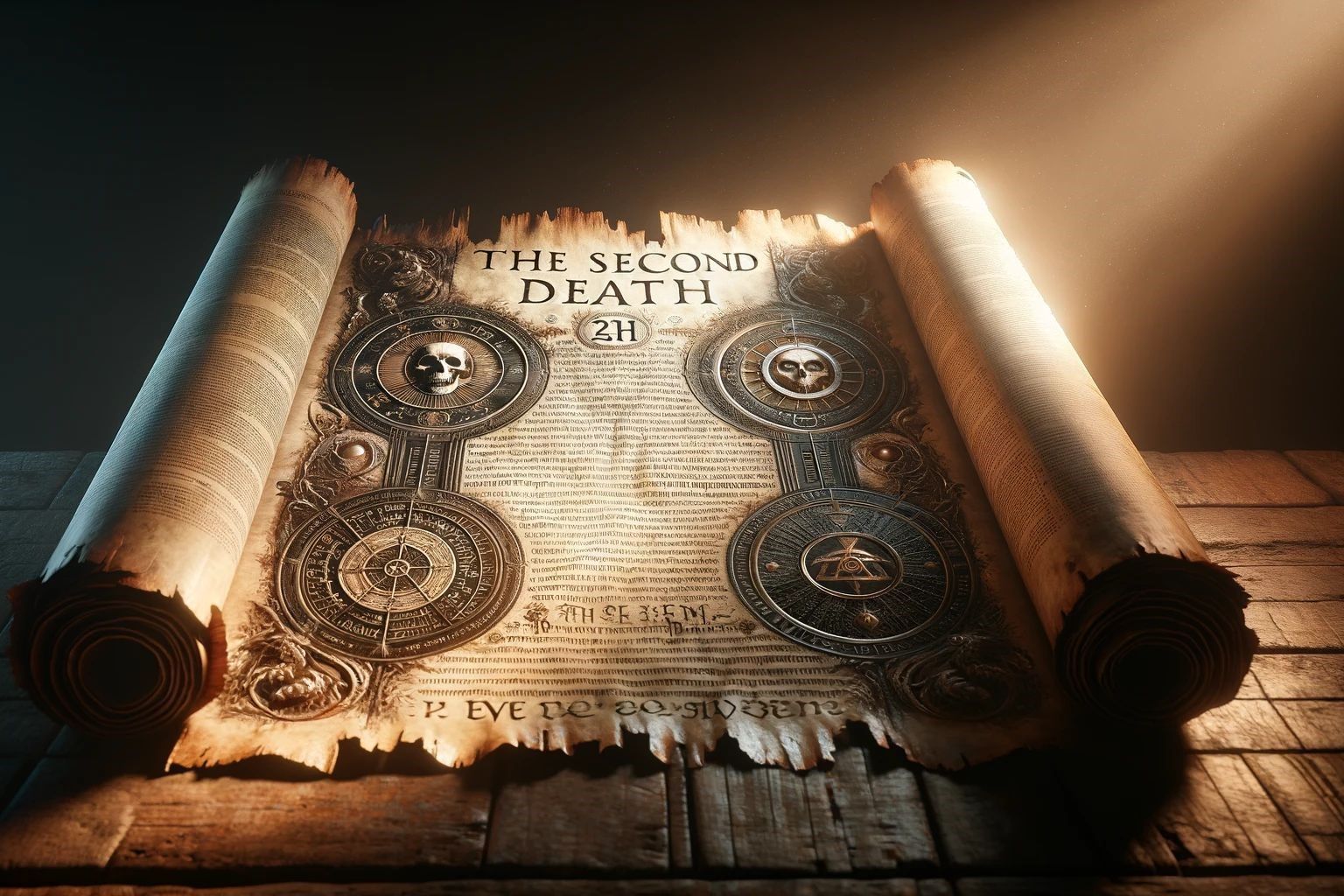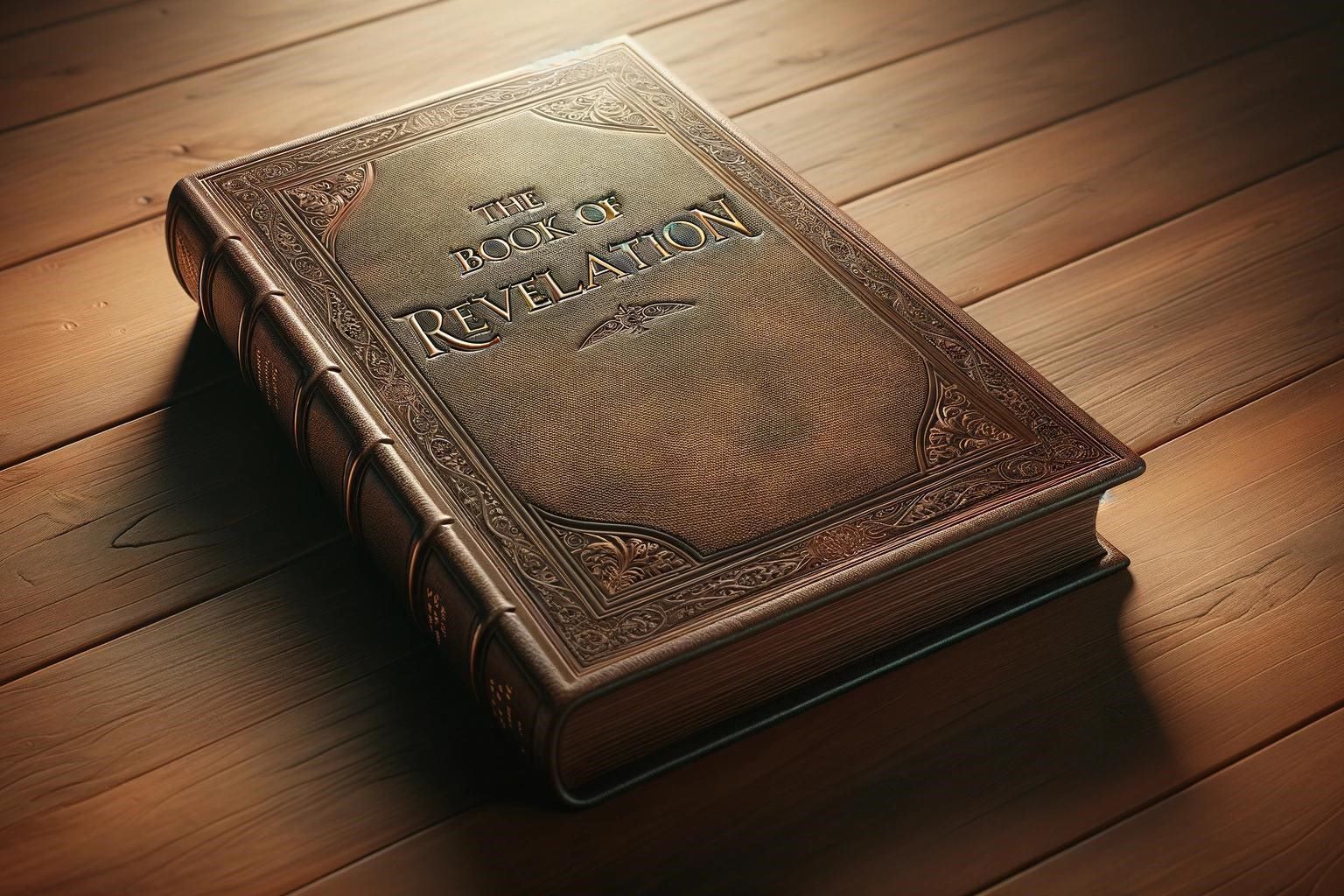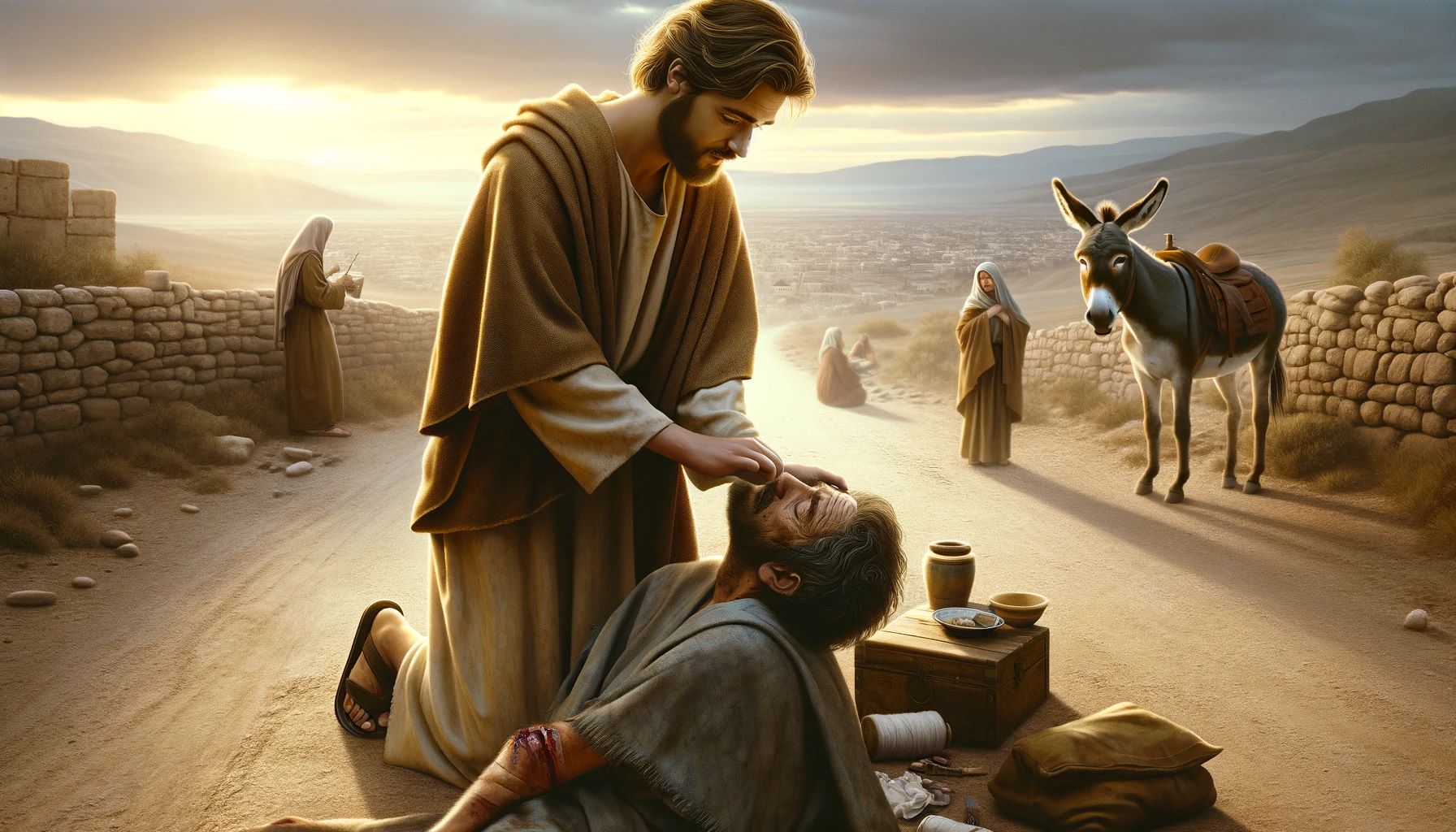Home>Bible Facts>What Does The Book Of Revelation Teach Us About God


Bible Facts
What Does The Book Of Revelation Teach Us About God
Published: February 11, 2024
Jason DeRose, Managing Editor at Christian.net, uses his expertise in religion and journalism to deepen understanding of faith's societal impacts. His editorial leadership, coupled with a strong academic background, enriches the platform’s diverse content, earning him recognition in both journalism and religious circles.
Discover the profound insights into God's nature and character revealed in the Book of Revelation. Explore fascinating Bible facts and deepen your understanding of God's teachings.
(Many of the links in this article redirect to a specific reviewed product. Your purchase of these products through affiliate links helps to generate commission for Christian.net, at no extra cost. Learn more)
Table of Contents
Introduction
The Book of Revelation, the final book of the New Testament, is a profound and enigmatic text that has captivated readers for centuries. It is a book of prophecy, visions, and divine revelations attributed to the apostle John. The book offers a glimpse into the future, unveiling the ultimate triumph of good over evil and the establishment of God's eternal kingdom.
Revelation is a complex and multifaceted work that delves into themes of judgment, redemption, and the ultimate sovereignty of God. It provides a unique perspective on the nature of God, presenting Him as the Alpha and Omega, the beginning and the end, and the ultimate authority over all creation.
As we delve into the teachings of the Book of Revelation, we embark on a journey to unravel the divine attributes and character of God as depicted in this apocalyptic masterpiece. Through its vivid imagery and symbolic language, Revelation offers profound insights into the nature of God, His sovereignty, justice, mercy, grace, and the ultimate victory that awaits believers.
In the subsequent sections of this article, we will explore the profound teachings of the Book of Revelation, shedding light on the nature of God as revealed in this awe-inspiring text. We will delve into the sovereignty of God, His unwavering justice, boundless mercy and grace, and the ultimate triumph of His divine plan. Join us as we embark on a transformative exploration of the Book of Revelation and discover the profound truths it unveils about the nature of God.
The Nature of God in the Book of Revelation
The Book of Revelation provides a captivating portrayal of the nature of God, offering profound insights into His divine attributes and character. At the heart of this apocalyptic work lies a vivid depiction of God as the omnipotent and eternal being, whose sovereignty transcends all realms of existence. Through its symbolic imagery and visionary narrative, Revelation presents a multifaceted view of God, unveiling His divine nature in a compelling and awe-inspiring manner.
Revelation introduces God as the Alpha and Omega, the beginning and the end, symbolizing His eternal and unchanging nature. This portrayal signifies God's omnipresence and timeless existence, emphasizing His sovereign authority over the past, present, and future. The book underscores the immutable nature of God, portraying Him as the unshakable foundation of all creation.
Furthermore, the Book of Revelation illuminates God's holiness and righteousness, depicting Him as the ultimate source of purity and perfection. The imagery of the heavenly throne and the worship of celestial beings underscores the divine majesty and transcendent glory of God. This portrayal underscores the awe-inspiring nature of God, emphasizing His absolute moral perfection and unwavering commitment to justice.
Moreover, Revelation presents God as the ultimate source of love and compassion, extending His boundless mercy and grace to humanity. The redemptive narrative woven throughout the book underscores God's profound love for His creation, culminating in the sacrificial atonement offered through the Lamb of God. This portrayal highlights God's compassionate nature, offering hope and salvation to those who seek His divine grace.
In essence, the Book of Revelation offers a multifaceted portrayal of the nature of God, encompassing His sovereignty, holiness, love, and redemptive purpose. Through its visionary narrative and symbolic imagery, Revelation unveils the profound truths about the divine nature of God, inviting readers to contemplate His awe-inspiring attributes and embrace the transformative power of His eternal love and grace.
As we delve deeper into the teachings of the Book of Revelation, we gain a deeper understanding of the multifaceted nature of God, His unwavering sovereignty, boundless love, and redemptive purpose for humanity. The profound insights offered in Revelation serve as a testament to the timeless relevance of its teachings, inspiring believers to embrace the transformative power of God's divine nature and the hope found in His eternal promises.
The Sovereignty of God in the Book of Revelation
The Book of Revelation vividly portrays the sovereignty of God, presenting Him as the ultimate authority and ruler over all creation. Throughout the apocalyptic visions and prophetic imagery, the book emphasizes God's unrivaled dominion and absolute control over the unfolding of history and the fulfillment of His divine plan. Revelation unveils God as the Alpha and Omega, the beginning and the end, signifying His timeless sovereignty that transcends all temporal boundaries.
The visionary narrative of Revelation underscores God's supreme authority, depicting Him as the divine orchestrator of cosmic events and the ultimate arbiter of justice. The imagery of the heavenly throne, surrounded by myriads of celestial beings, symbolizes the majestic reign of God over the universe. This portrayal highlights His unassailable sovereignty, emphasizing His absolute power and dominion over all realms of existence.
Moreover, the book presents God as the sovereign ruler who holds the key to the future, unveiling prophetic visions that foretell the culmination of His redemptive plan. The unfolding of seals, trumpets, and bowls signifies God's sovereign control over the progression of history and the ultimate fulfillment of His divine purpose. This portrayal underscores the overarching sovereignty of God, emphasizing His unwavering authority in bringing about the consummation of all things according to His divine will.
Furthermore, the Book of Revelation illuminates God's sovereignty in the defeat of evil and the establishment of His eternal kingdom. The triumphant imagery of the Lamb of God overcoming the forces of darkness underscores God's ultimate victory and the fulfillment of His sovereign plan for redemption. This portrayal emphasizes God's unassailable sovereignty, revealing His absolute triumph over all opposing powers and the establishment of His eternal reign of righteousness.
In essence, the Book of Revelation offers a compelling portrayal of the sovereignty of God, emphasizing His unrivaled authority, divine orchestration of history, and ultimate triumph over evil. The profound insights unveiled in Revelation invite readers to contemplate the awe-inspiring sovereignty of God and find assurance in His unchanging reign over the cosmos. As believers immerse themselves in the teachings of Revelation, they are reminded of the enduring sovereignty of God and the assurance that His divine plan will ultimately come to fruition, bringing about the fulfillment of His eternal purposes.
The Justice of God in the Book of Revelation
The Book of Revelation provides a profound and vivid portrayal of the justice of God, unveiling His unwavering commitment to righteousness and the ultimate triumph of divine justice. Throughout the apocalyptic visions and prophetic imagery, Revelation presents God as the righteous judge who upholds moral order and executes judgment with absolute fairness.
The imagery of the heavenly throne, surrounded by myriads of celestial beings, symbolizes the divine tribunal where God dispenses justice with absolute impartiality. The book depicts the righteous judgment of God as an integral aspect of His divine nature, emphasizing His commitment to upholding moral righteousness and holding all accountable for their actions.
Moreover, Revelation unveils the righteous judgment of God through the vivid portrayal of the final judgment, where the deeds of every individual are weighed against the standard of divine righteousness. The book emphasizes the accountability of all creation before the righteous judgment of God, underscoring the impartiality and integrity of His divine justice.
Furthermore, the Book of Revelation illuminates the righteous judgment of God in the defeat of evil and the vindication of the righteous. The imagery of the great white throne judgment underscores the culmination of divine justice, where evil is vanquished, and the righteous are vindicated. This portrayal highlights God's unwavering commitment to justice, ensuring that every injustice is rectified and every act of righteousness is rewarded according to His righteous standards.
In essence, the Book of Revelation offers a compelling portrayal of the justice of God, emphasizing His unwavering commitment to righteousness and the ultimate vindication of the righteous. The profound insights unveiled in Revelation invite readers to contemplate the righteous judgment of God and find assurance in His unwavering commitment to upholding moral order. As believers immerse themselves in the teachings of Revelation, they are reminded of the enduring justice of God and the assurance that His righteous judgment will ultimately prevail, bringing about the fulfillment of His divine justice.
The justice of God as depicted in the Book of Revelation serves as a powerful reminder of His righteous nature and the assurance that His divine justice will ultimately prevail, bringing about the fulfillment of His eternal purposes.
The Mercy and Grace of God in the Book of Revelation
The Book of Revelation offers a profound and captivating portrayal of the mercy and grace of God, unveiling His boundless compassion and redemptive love for humanity. Amidst the apocalyptic visions and prophetic imagery, Revelation presents God as the embodiment of mercy and grace, extending His compassionate embrace to all who seek His divine forgiveness and salvation.
Revelation illuminates the mercy of God through the redemptive narrative woven throughout its visionary narrative. The imagery of the Lamb of God, who was slain for the redemption of humanity, underscores the sacrificial atonement that embodies God's profound mercy. This portrayal signifies God's willingness to extend forgiveness and reconciliation to humanity, offering a path to redemption and restoration through His boundless mercy.
Furthermore, the book unveils the grace of God as a transformative force that transcends human frailty and sin. The visionary imagery of the heavenly multitude, clothed in white robes washed in the blood of the Lamb, symbolizes the transformative power of God's grace, which enables believers to be cleansed and sanctified. This portrayal highlights God's unmerited favor and transformative grace, offering believers the assurance of divine acceptance and spiritual renewal through His redemptive love.
Moreover, Revelation portrays the mercy and grace of God as the foundation of His redemptive plan for humanity. The invitation to partake of the water of life freely and the promise of eternal inheritance signifies God's gracious offer of salvation and the abundant blessings bestowed upon those who embrace His redemptive love. This portrayal underscores God's desire to extend His mercy and grace to all who are willing to receive His divine gift of salvation, offering the assurance of eternal life and fellowship with Him.
In essence, the Book of Revelation offers a compelling portrayal of the mercy and grace of God, emphasizing His boundless compassion and redemptive love for humanity. The profound insights unveiled in Revelation invite readers to contemplate the transformative power of God's mercy and grace, offering hope and assurance to all who seek His divine forgiveness and salvation. As believers immerse themselves in the teachings of Revelation, they are reminded of the enduring mercy and grace of God, inviting them to embrace the transformative power of His redemptive love and the hope found in His eternal promises.
The mercy and grace of God as depicted in the Book of Revelation serves as a powerful reminder of His compassionate nature and the assurance that His redemptive love will ultimately prevail, offering hope and salvation to all who seek His divine forgiveness.
The Final Victory of God in the Book of Revelation
The Book of Revelation culminates in a triumphant portrayal of the final victory of God, unveiling the ultimate fulfillment of His divine plan and the establishment of His eternal kingdom. Throughout its apocalyptic visions and prophetic imagery, Revelation presents a vivid narrative of the cosmic conflict between good and evil, ultimately culminating in the decisive triumph of God over all opposing powers.
Revelation unveils the final victory of God through the visionary imagery of the climactic battle between the forces of darkness and the triumphant return of Christ as the conquering King. The portrayal of the rider on the white horse, symbolizing the victorious return of Christ, signifies the ultimate triumph of God's redemptive purpose and the vanquishing of all opposing forces. This portrayal underscores the assurance of God's ultimate victory over evil and the establishment of His eternal reign of righteousness and peace.
Moreover, the book portrays the final victory of God through the imagery of the new heaven and new earth, where the former things have passed away, and God's eternal kingdom is established. The depiction of the holy city, the new Jerusalem, descending from heaven adorned as a bride, signifies the culmination of God's redemptive plan and the restoration of all creation. This portrayal emphasizes the assurance of God's ultimate victory, bringing about the renewal and transformation of the cosmos according to His divine purpose.
Furthermore, Revelation unveils the final victory of God through the defeat of the dragon, the ancient serpent, who is bound and ultimately cast into the lake of fire. The imagery of the final judgment and the eternal defeat of evil underscores the decisive triumph of God's righteousness and the eradication of all forms of wickedness. This portrayal highlights the assurance of God's ultimate victory, ensuring the eternal vindication of the righteous and the complete eradication of evil from His eternal kingdom.
In essence, the Book of Revelation offers a compelling portrayal of the final victory of God, emphasizing the ultimate triumph of His redemptive plan and the establishment of His eternal kingdom. The profound insights unveiled in Revelation invite readers to contemplate the assurance of God's ultimate victory over evil and the fulfillment of His eternal promises. As believers immerse themselves in the teachings of Revelation, they are reminded of the enduring hope found in the final victory of God, inspiring them to embrace the transformative power of His redemptive love and the assurance of His eternal reign.
The final victory of God as depicted in the Book of Revelation serves as a powerful reminder of the ultimate fulfillment of His divine plan and the assurance of His eternal triumph over all opposing powers, offering hope and assurance to all who place their trust in His redemptive purpose.
Conclusion
The Book of Revelation stands as a timeless testament to the profound teachings about the nature of God and the ultimate fulfillment of His divine plan. Through its apocalyptic visions and prophetic imagery, Revelation offers a multifaceted portrayal of God, unveiling His sovereignty, justice, mercy, grace, and the ultimate triumph of His eternal kingdom. As believers delve into the transformative teachings of Revelation, they are invited to contemplate the awe-inspiring attributes of God and find assurance in His unwavering love and redemptive purpose.
Revelation presents God as the Alpha and Omega, the beginning and the end, symbolizing His eternal and unchanging nature. This portrayal underscores His omnipresence and timeless existence, emphasizing His sovereign authority over all realms of existence. The book also illuminates God's holiness and righteousness, depicting Him as the ultimate source of purity and perfection. The imagery of the heavenly throne and the worship of celestial beings underscores the divine majesty and transcendent glory of God.
Moreover, Revelation unveils the righteous judgment of God as an integral aspect of His divine nature, emphasizing His commitment to upholding moral righteousness and holding all accountable for their actions. The book also offers a profound and captivating portrayal of the mercy and grace of God, unveiling His boundless compassion and redemptive love for humanity. Amidst the apocalyptic visions and prophetic imagery, Revelation presents God as the embodiment of mercy and grace, extending His compassionate embrace to all who seek His divine forgiveness and salvation.
The final victory of God as depicted in the Book of Revelation serves as a powerful reminder of the ultimate fulfillment of His divine plan and the assurance of His eternal triumph over all opposing powers, offering hope and assurance to all who place their trust in His redemptive purpose. As believers immerse themselves in the transformative teachings of Revelation, they are reminded of the enduring hope found in the final victory of God, inspiring them to embrace the transformative power of His redemptive love and the assurance of His eternal reign.
In conclusion, the Book of Revelation offers a profound and transformative exploration of the nature of God, inviting believers to contemplate His awe-inspiring attributes and embrace the transformative power of His eternal love and grace. The timeless relevance of its teachings continues to inspire and uplift believers, offering enduring hope and assurance in the ultimate fulfillment of God's divine plan.

